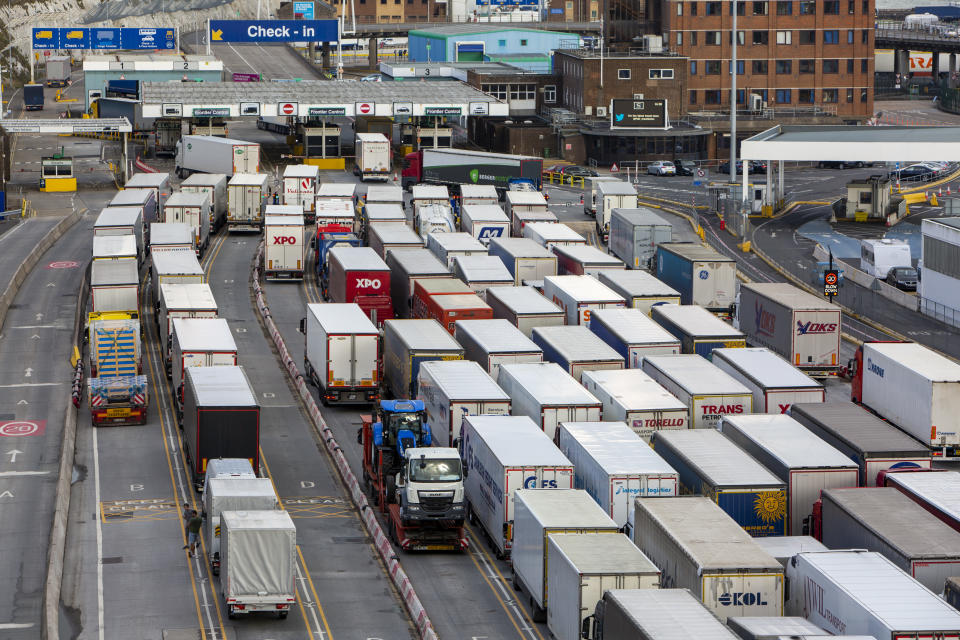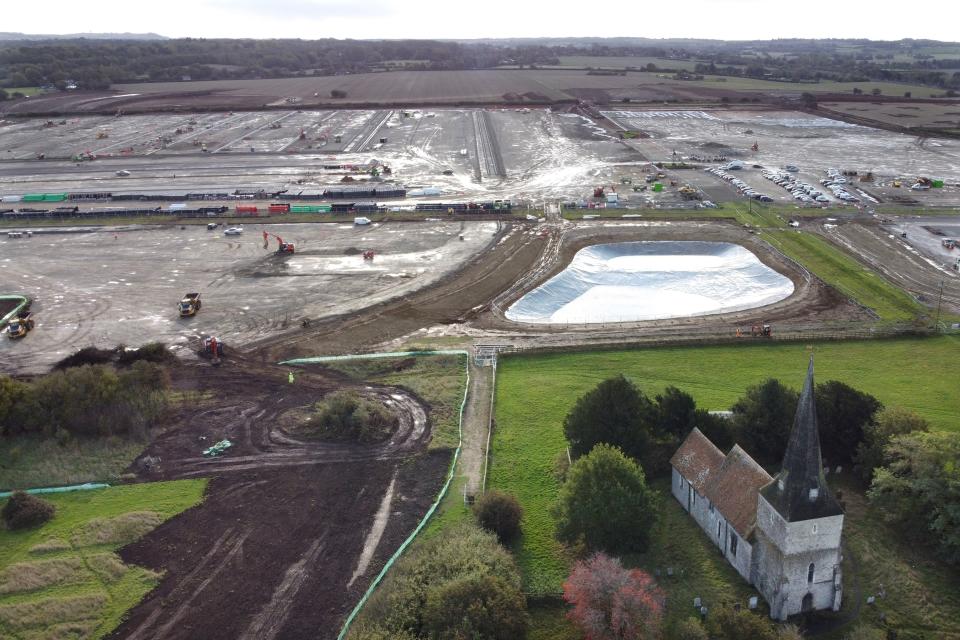Businesses have 'head in the sand' over Brexit preparation
Watch: What are the consequences of a no deal Brexit?
Businesses that trade with the EU have their “head in the sand” over Brexit, according to a government official working on preparations.
Lord Agnew, a minister of state working on Brexit preparedness at the Treasury and HMRC, said too few companies were ready for the extra paperwork necessary when Britain leaves the EU transition period.
“The bit that worries me the most is trader readiness,” Lord Agnew told MPs on the Treasury Select Committee on Tuesday. “The traders are not as ready as they should be.”
Britain is set to leave the EU transition period on 1 January 2021. Both sides are still negotiating a potential trade deal but businesses will face extra paperwork regardless of whether the UK leaves with or without a deal.
Each lorry passing through Dover must present a customs declaration for entry into France every time they cross the border, for example — something that is not required under single market rules.

Lord Agnew said many businesses were taking a “head in the sand approach”, in part due to fatigue from past Brexit deadlines, COVID-19, and a recession in the UK.
“It is their businesses that are at stake from the first of January and they really must engage in a more energetic way,” Lord Agnew said.
An estimated 250,000 businesses that trade with the EU must sign up for an EORI number — an Economic Operators Registration and Identification number, which is required for all customs declarations.
READ MORE: Brexit economic disruption 'unavoidable' with the worst to come
HMRC has set up a 100-person call centre to reach businesses and Lord Agnew said “several thousand calls a week” were being made to encourage them to get an EORI number.
Around 210,000 businesses have signed up for one so far. The 40,000 companies without one are thought to be micro-businesses that are difficult to reach.
“Ultimately, the government can only do so much,” Lord Agnew said. “If businesses haven’t engaged in the process and understood the processes from the 1 January, that has to be their responsibility.
“What I’m trying to do is get businesses to wake up and realise that they have only 80 or so days left to do it.”

The government this week launched an app that allows traders to check if they are prepared to continue trading with the EU post-Brexit. The app is “in beta” and available to just a select group of traders, Lord Agnew said, but should be rolled out more widely in the coming weeks.
Those businesses that don’t prepare could face delays at the border and fines. The government has set up lorry parks in Kent to house vehicles that don’t have the correct paperwork at the border. Lord Agnew highlighted a facility at Manston Airport, which can house up to 4,000 lorries.
“To be brutal about it, how many times is a lorry driver going to drive into Kent, take a £300 [$391] fine and then park up in Manston for 36 hours while he gets his paperwork sorted?” Lord Agnew said. “I hope to goodness they won’t do that more than once.
“That is the consequence of not being ready. You turn up, you get a fine, you get parked in a holding bay while they sort your paperwork out, there will be congestion and they might get sent home because they can’t sort the paperwork out.”
Watch: What are freeports?
Under a worst case scenarios, the UK government has said queues of up to 7,000 lorries could form at the boarder and cause delays of up to 2 days.
“What we are simply asking businesses who trade with the EU is to get ready,” Lord Agnew said.
The Institute for Fiscal Studies wrote in a report published on Tuesday: “Deal or no deal, substantial economic disruption in early 2021 is now likely unavoidable.”

 Yahoo Sport
Yahoo Sport 





































